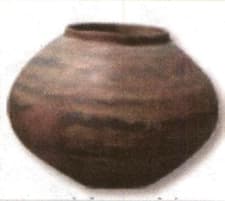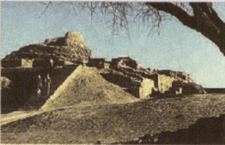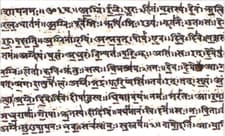"Bharat" is one of the official names for India in the Hindi language.
Explore the etymological roots and historical evolution of the name "Bharata."
Important Questions on Introduction: What, Where, How and When?
History is an intellectual discipline practised by historians who try to make sense of the past.
How do historians define their role in the study of the past?
People have lived along the banks of river Narmada for several hundred thousand years. They were aware of the vast wealth of the forest around them. They collected roots, fruits and other forest products for their food from these surrounding forests.
Which kind of people lived here for thousands of years?
Read the below lines and answer the following question:-
Rasheeda sat reading the newspaper. Suddenly she read a small headline: “One Hundred Years Ago.” She wondered if anyone knew what had happened many years ago?
Return to Rasheeda's question. Can you think of some answers to it? How can one know what happened in the past?
Hidden in the word search are the names of eight sources of History. Find them.
| C | F | W | Q | L | U | I | E | P | V | N | B |
| M | O | N | U | M | E | N | T | S | X | C | L |
| A | R | T | E | F | A | S | O | Z | D | S | O |
| R | T | H | J | S | K | C | O | U | D | S | R |
| T | S | P | I | V | Q | R | L | Y | R | B | N |
| E | Z | C | E | O | W | I | S | A | W | P | A |
| F | G | H | K | Q | Z | P | R | P | W | E | M |
| A | R | I | N | X | A | T | O | U | Q | W | E |
| C | B | W | R | I | T | I | B | A | T | O | N |
| T | V | P | E | U | P | O | T | S | E | R | T |
| S | O | I | N | M | Q | N | C | Y | W | X | S |
| F | L | C | O | I | N | S | G | J | K | E | N |
Read the passage carefully and answer the following questions.
One fine morning in a cowboy named George Mcjunkin saw some sun-bleached bones. He pried the pieces of bones out with his knife. He took the finds back to his house, where they lay around for seventeen years. In , someone sent the bones to Figgins, the director of the Colorado Museum of Natural History. The following year, Figgins dug the same area and found more bones and stone tools. It was then realised that it was a proof of human existence at the same time when long-extinct animals inhabited that area. The excavated items fall under which historical sources?
Look at the following pictures. The objects shown in the pictures are the sources that archaeologists use to study the past. Write whether they are 'archaeological' or 'literary' sources in the blank boxes.
 _____.
_____. _____.
_____. _____.
_____.
